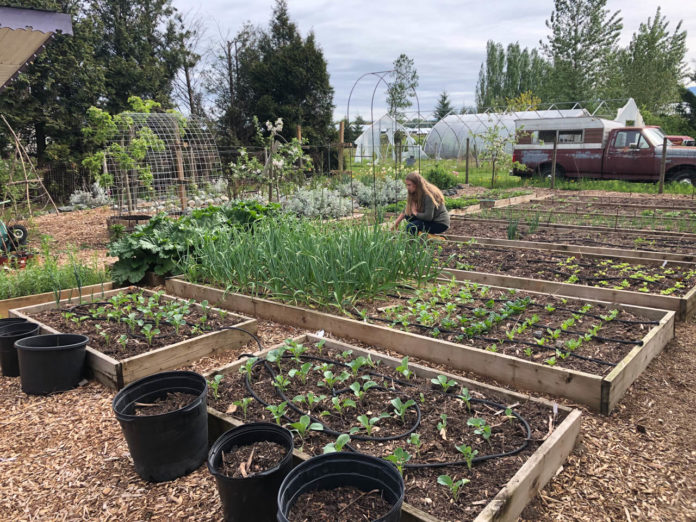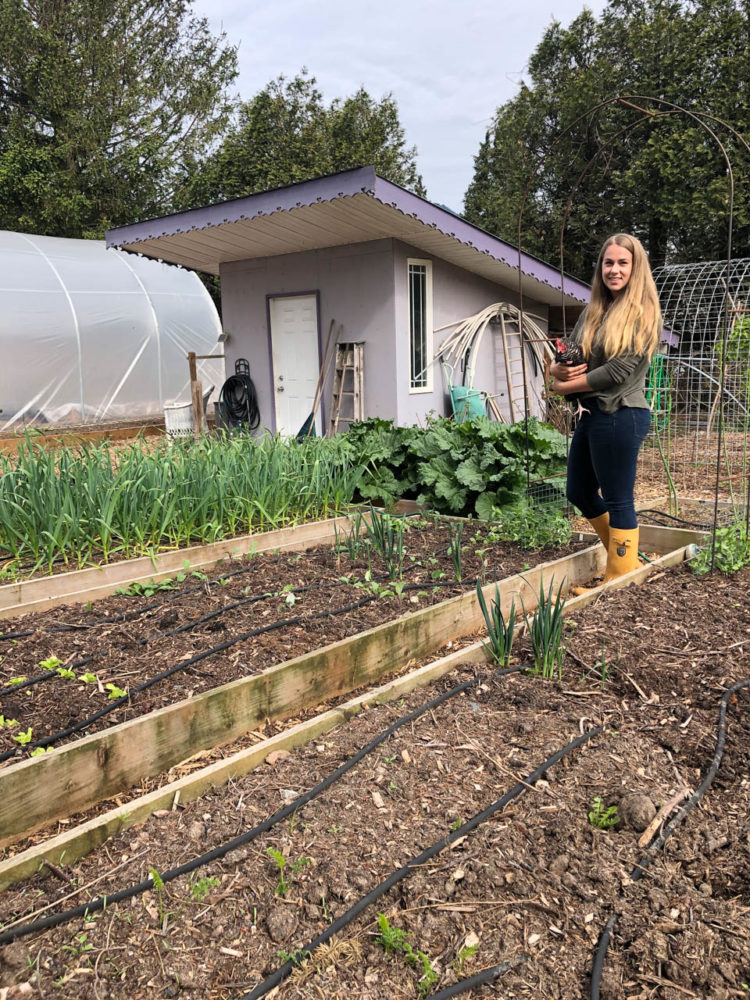 Karli Funk, UFV Agriculture alumni, has a thriving backyard garden in Yarrow complete with a greenhouse, a dozen vegetable beds (featuring garlic, mustard greens, lettuce, asparagus, leeks, peas, onions, potatoes, tomatoes, and peppers), a chicken coop, fruit trees, and beautiful flowers. She grows enough vegetables to be able to feed her small family all summer and even enough leftovers to sell on her roadside stand. Funk has over eight years of experience gardening, and kindly shared some tips and tricks for students who are just starting out.
Karli Funk, UFV Agriculture alumni, has a thriving backyard garden in Yarrow complete with a greenhouse, a dozen vegetable beds (featuring garlic, mustard greens, lettuce, asparagus, leeks, peas, onions, potatoes, tomatoes, and peppers), a chicken coop, fruit trees, and beautiful flowers. She grows enough vegetables to be able to feed her small family all summer and even enough leftovers to sell on her roadside stand. Funk has over eight years of experience gardening, and kindly shared some tips and tricks for students who are just starting out.
How should people start growing vegetables from seeds?
Most of my seedlings will start in a tray, and when they get too big for their little tray pots, I’ll pop it out and see how developed the roots are, and I’ll plant it in the vegetable bed. However, not everything benefits from being started in a seedling tray. You don’t want to start your beets or carrots in a seedling tray, you want to start with those in the ground.
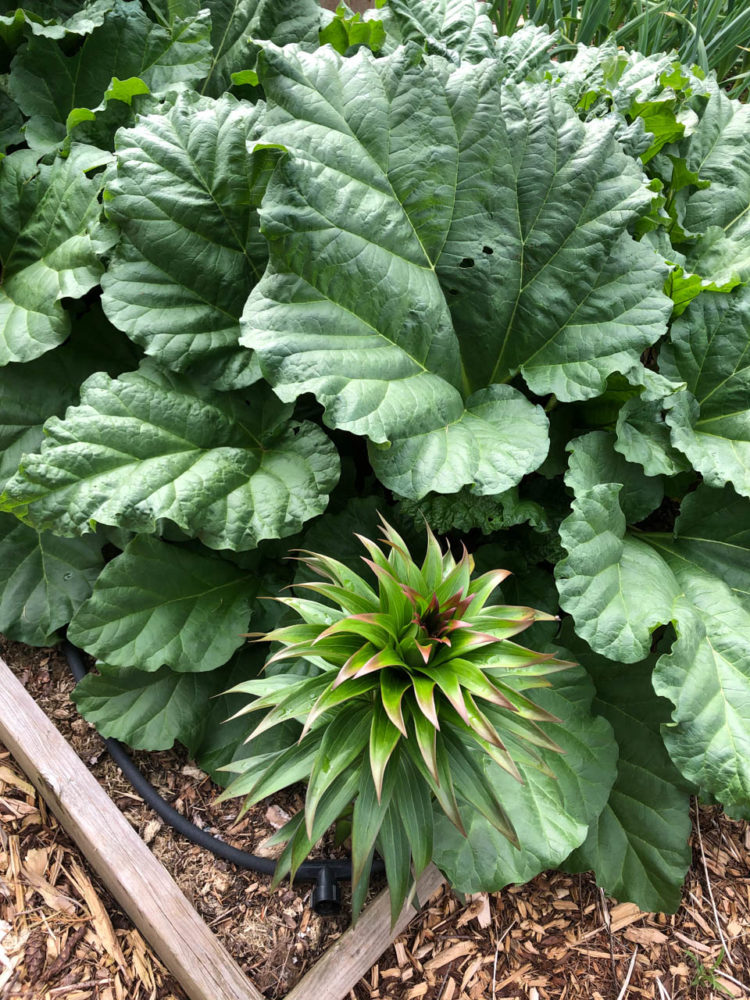 What kind of vegetable beds should people start with?
What kind of vegetable beds should people start with?
I didn’t start with tomatoes; I started with things like beets, carrots, peas, beans — some of the easier varieties that can grow outside in a colder climate. So, to heat it up, to create a greenhouse effect outside, you can build a PVC pipe in a dome over your bed and put poly sheeting overtop of it. That heats up the soil, and it also protects the seedlings.
What kind of soil should be in the beds?
I think I just started with your typical garden centre garden-blend soil, but every year since then, I’ve tried to top them up with my own compost, or I’ll buy the compost from Local Harvest, a local business on Lickman Road, which is a good blend of mushroom manure, horse manure, and woodchips. I just put the compost on top; I don’t till it into my garden beds.
Are raised beds crucial or can I plant directly into the ground?
You can plant into the ground as well. I just prefer raised beds because it’s warmer. Also, depending on the material of the raised bed it can heat up faster. You don’t want it too hot, otherwise the seedlings could die, but you want it warmer for quicker germination. I normally start growing in the middle of March with the poly-house and raised beds.
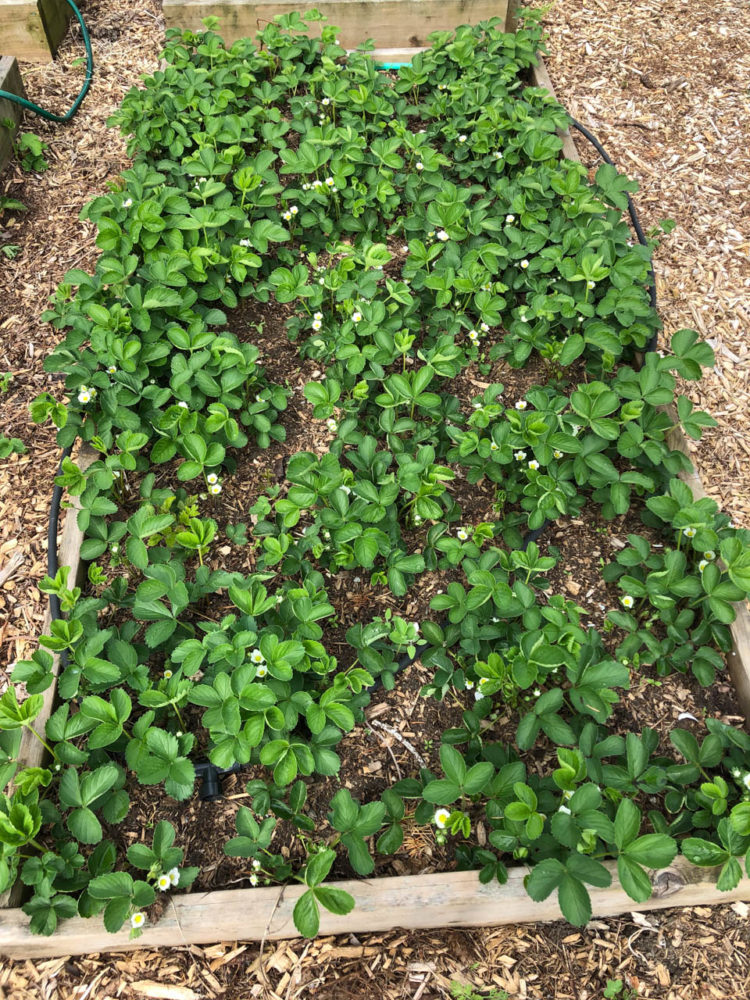 What is your daily garden routine like? What care needs to go into the beds everyday?
What is your daily garden routine like? What care needs to go into the beds everyday?
I have an irrigation system that is automated, and it’s all on a timer. For just a regular garden, you can always just use a hose or gardening can. Try to water everyday or every other day, depending on the weather. I haven’t watered recently because it’s been raining and the soil is still pretty damp. Always check for weeds; check for pests. The biggest job is just getting everything seeded and transplanted into the garden, and after that it’s pretty low maintenance; just the watering, weeding, and finally harvesting.
What are the best ways to harvest the vegetables?
If you harvest a whole head of lettuce, for example, you will have to replant lettuce or plant something else. You can also do a method called “cut and come again,” where you pick the outermost leaves, and it still allows the new leaves to come out. 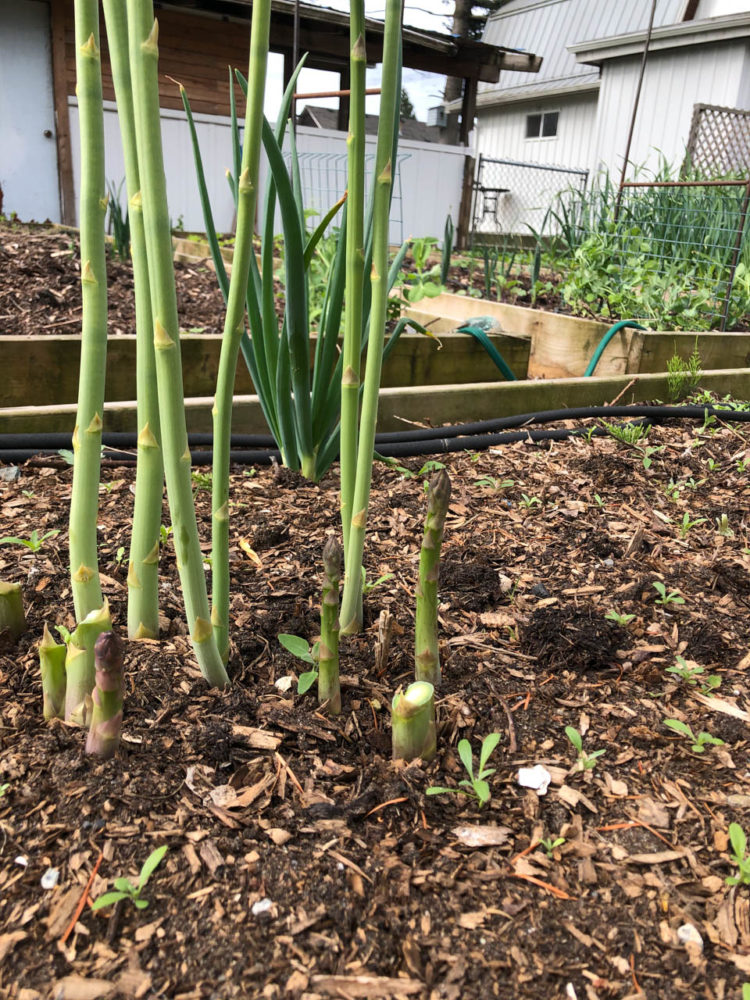
And you have a small business, too? Or what do you do with the extra produce?
I have a little roadside stand that I sell excess produce at. I always have extra of everything. I was also thinking about doing Community Supported Agriculture, so a farmer will sell sort of like subscription boxes to customers, to put in whatever extra vegetables they have grown that week. I was thinking of doing something like that for a small number of clients. It is amazing how much you can grow out of an intensively grown small plot of land. In the summer, I don’t buy vegetables at all, because I have everything I need right here and then some.
What are some common mistakes you see people making with gardening?
Well, nurseries will have tomatoes available now, and people will buy the tomatoes and plant them outside now, and then they die because it’s way too cold. So, a big mistake is planting when it’s not the right time.
How do you deal with pest problems?
That is something I am still trying to figure out, and it can be quite overwhelming. But, if I see a bunch of aphids on kale or broccoli, I’ll just take a spray hose and try to spray them off as much as possible, or you could just squish them with gloved hands. I’ve heard of people using neem oil spray as an organic method. I haven’t tried that myself, though. I try to encourage a lot of beneficial insects, such as predatory insects. Ladybugs are great for eating aphids, for example. I also have some predatory wasps in my chicken coops. When I started planting dahlias I noticed more frogs in my garden, which is good because they eat whatever. You could encourage frogs coming to your garden by having little ponds or water bowls for them.
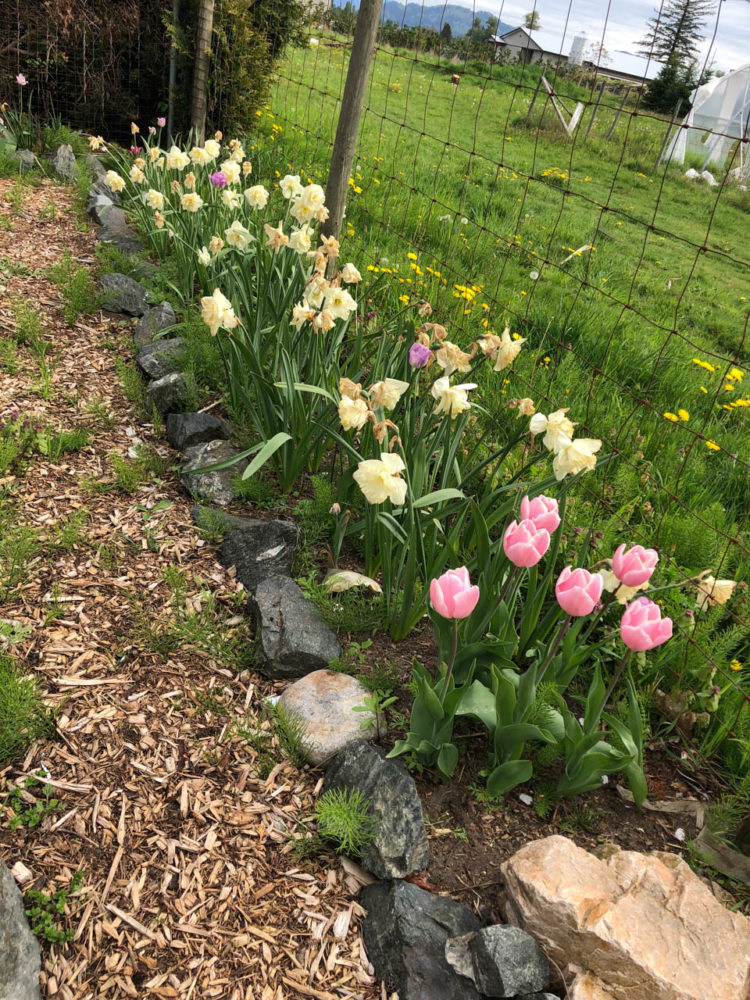 Any final tips or tricks people should know when starting a vegetable garden?
Any final tips or tricks people should know when starting a vegetable garden?
Start small. This didn’t happen overnight. This has been an obsession I have curated for a number of years, and I am always adding another bed every year. So definitely start small, don’t be afraid to experiment or try new things, and don’t say no to something. I always said I would never grow kohlrabi. It’s a funny looking crop and to me it had no purpose, but now I am growing it because it’s actually a really good vegetable. So, don’t be afraid to try new things.
This interview has been edited for length and clarity.
Images: Andrea Sadowski/The Cascade
Andrea Sadowski is working towards her BA in Global Development Studies, with a minor in anthropology and Mennonite studies. When she's not sitting in front of her computer, Andrea enjoys climbing mountains, sleeping outside, cooking delicious plant-based food, talking to animals, and dismantling the patriarchy.

